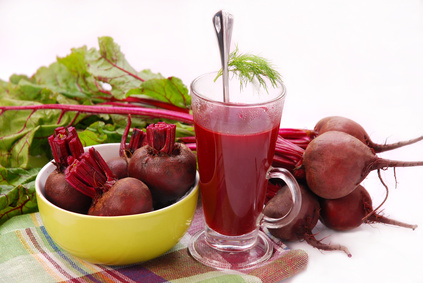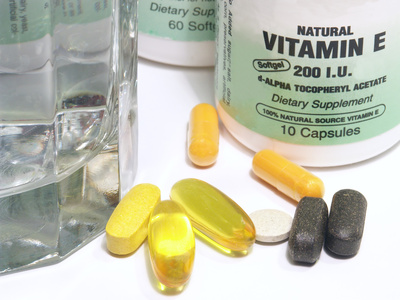
by Daisy Raybould
Recent studies have shown that a quarter of US adults are deficient in vitamin B12, and half of US adults have “sub-optimal” levels of this vitamin. Vitamin B12, also known as cyanocobalamin, is an essential vitamin that is necessary for many of the vital processes of the body. Since it is an “essential” vitamin that your body can’t produce on its own, it must be provided through either diet or supplementation.
Without enough B12, your body can’t grow new tissue or create red blood cells. It’s also necessary for DNA replication, haemoglobin creation, the formation of the myelin sheaths that protect your nerves, digesting your food, reducing homocysteine levels, supporting your immune system, and metabolizing fats and proteins.
Causes of Vitamin B12 Deficiency
Interestingly, the richest sources of vitamin B12 include sewage, manure, soil and mud, but luckily for us (and our taste buds) there are alternative, slightly more palatable sources.
Naturally occurring B12 is found in food sources like milk, eggs, seafood, meat and liver. For this reason deficiencies can often be caused by following a strict vegetarian/vegan diet, because bioavailable (usable by the body) B12 is found primarily in animal sources.
 Fear not though if you are vegan, there are a few active sources of B12 suitable for vegans and vegetarians although the B12 present in these sources are not naturally occurring.
Fear not though if you are vegan, there are a few active sources of B12 suitable for vegans and vegetarians although the B12 present in these sources are not naturally occurring.
For example, nutritional yeast has been identified as a reliable source of B12 with just two rounded tablespoons providing the recommended daily dosage of 2.4 micrograms daily.
Other B12 vegan sources include fortified cereal with approximately half a cup providing the recommended daily dosage but be sure to check the packaging first as some brands no longer add B12. Non-dairy “plant” milks (such as almond, rice and soy), energy bars and drink mixes are also often fortified with vitamin B12.
Vitamin B12 deficiency can also result from an inability to absorb the vitamin from the foods you eat due to a malabsorption syndrome, using antacids or anti-ulcer drugs, or an H. pylori infection.
Even getting older can result in a deficiency, since as you age your stomach produces less acid, and anything that reduces acid production interferes with your ability to absorb nutrients from your food.
Symptoms of a B12 Deficiency
Symptoms of a B12 deficiency are frequently missed, because they are so varied and can easily be mistaken for something else or dismissed as normal signs of the aging process.
Neurological symptoms can include:
• memory problems
• confusion
• headaches
• depression
• anxiety
• problems with balance
• decreased ability to sweat
• impotence
• delusions
• blurred vision
• lack of coordination
• loss of dexterity
• muscle weakness
• legs buckling
• tripping over nothing
• muscle cramps and/or twitches
• nerve damage
• numbness and tingling in the hands or feet
• neuropathic (nerve) pain
Shortages of B12 can also cause digestive symptoms, such as:
• nausea and/or vomiting
• bloating
• loss of appetite
• heartburn
• unexplained weight loss
• diarrhoea or constipation
A deficiency in vitamin B12 can also result in anemia, with symptoms of:
• paleness
• fatigue
• dizziness and/or light headedness
• shortness of breath with even light exertion
Finally, a vitamin B12 deficiency can have a number of impacts on our appearance. For example, a lack of vitamin B12 causes hair loss and hair greying, while shortages can also result in nail disease.
Treatment for B12 Deficiency
The only treatment for a B12 deficiency is to get more B12, and the best forms of supplementation avoid the digestive tract, since many deficiencies involve a problem with absorption.
Sublingual forms of B12 are absorbed directly into the bloodstream through the mucus membranes of the mouth, and are available as liquids, sprays, or small tablets designed to be placed under the tongue and allowed to dissolve. There are also patches available that allow the vitamin to be absorbed through the skin.
Supplementation can resolve all of the listed symptoms; although some will take longer to resolve than others; and severe, long-term deficiencies can result in nerve damage that may never heal completely.
If you are experiencing any of the above symptoms (and even if you are not), then consider changing your diet to include more foods containing this essential vitamin and consider increasing your dosage with B12 supplements. You will be surprised just what an impact to your health, mood and beauty this will make.
(Daisy Raybould passionately believes that nature’s wonders can solve the majority of all life’s health and beauty issues. You can visit her blog and read her favorite blog post at 50 Tips For Ultimate Health, Gorgeous Skin, Beautiful Hair & A Perfect Body.)






Be the first to comment